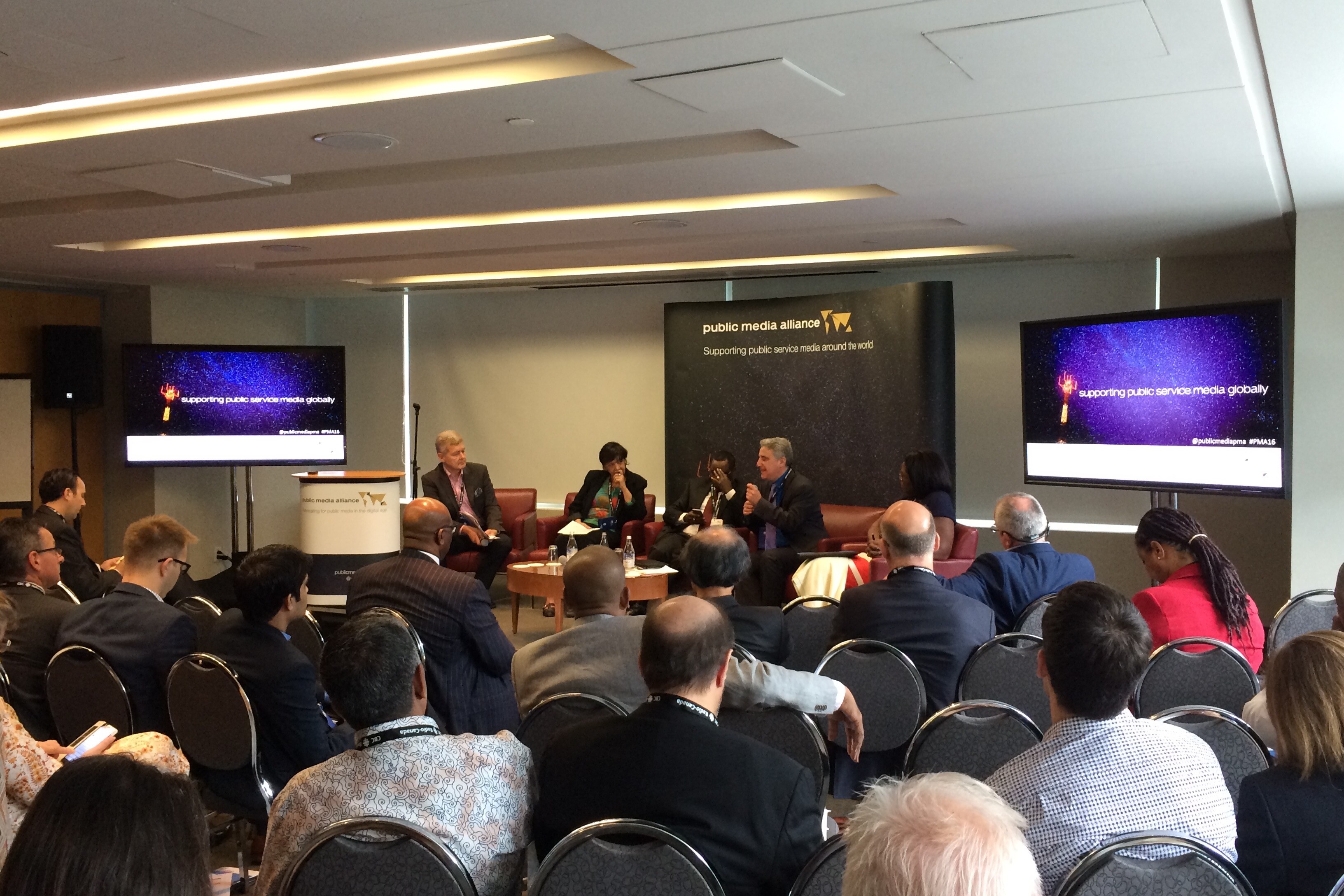By Sally-Ann Wilson, PMA CEO
The 3rd May is World Media Freedom Day. It should be a day of celebration. A day when organisations such as the Public Media Alliance mark the progress being made around the world in terms of freedom of expression.
After all, it was nearly half a century ago that Article 19 of the Universal Declaration of Human Rights confirmed that, “Everyone has the right to freedom of opinion and expression; this right includes freedom to hold opinions without interference and to seek, receive and impart information and ideas through any media and regardless of frontiers”.
But at the Public Media Alliance we are not in the mood for celebration. As the largest global association of public broadcasters we have a unique overview of issues such as media freedom. That democratic socities are underpinned by a free and independent media is well established but day by day we see a deterioration in media freedoms worldwide, as journalists come under increasing pressure and editorial independence is slowly eroded.
We are not alone in our view. It is reflected in the annual reports of organisations such as Freedom House, Reporters without Borders and Index on Censorship .
Each year the PMA team checks these annual indicators and compares them with the information we have received directly from our members and their journalists. We note the places gained and lost by the countries our members represent. Sadly, these days there are more losses than gains as countries that were once renowned for building a free and vibrant press, slide back down the index. These slides are inevitably matched by a weakening of democracy.

Yes, there are glimmers of optimism. After years of civil war and brutal media repression there is a new regime in Sri Lanka accompanied by a slow but seemingly steady progress towards a stronger and more independent media.
Tonga
In some countries our organisation has worked alongside national broadcasters as their countries have witnessed the birth of democracy. This was the case in the Pacific Kingdom of Tonga. In 2015 Akilisi Pohiva became the kingdom’s first ever democratically elected “commoner” Premier; a Prime Minister whom had long been a campaigner for democracy.
The Tongan constitution guarantees freedom of the press and Tonga’s National Broadcaster, TBC, is very ably led by Nanise Fifita, a PMA Board member and her team, Head of Programmes Viola Ulakai and Chief Engineer Solomon Finau as well as Mele Kamoto, Head of Finance and Marketing. In fact Solomon is acclaimed as one of the best broadcast engineers in the entire Pacific region. Tonga has many economic challenges but with this team in place we knew that TBC was on a path to grow and reflect the new democratic values in Tonga.
A key role of any public media organisation is to ensure that both professional journalists and citizens have the right to question those in power, it is why the media is often called ‘the fourth estate’. Tough questions help build public trust, keeping politicians on their toes and ensuring that they know that they must be fully accountable.
A key role of any public media organisation is to ensure that both professional journalists and citizens have the right to question those in power
The current staff at TBC have received extensive training and are highly professional. Nanise and her team understand that however uncomfortable the questions they ask of their elected politicians, it is transparency and accountability that underpins democracy. It’s what veteran democracy campaigners such as Tongan Prime Minster Pohiva fought for – the right to be free and speak freely.
Unlike countries such as the Maldives, where concern has grown year on year for the safety of journalists, we’ve been delighted and proud as Tonga has steadily climbed the rankings in terms of media freedom. That is until recently. Now there are worrying reports from the Pacific that indicate growing pressure is being placed on media organisations such as TBC over their questioning of politicians regarding matters of public interest and of utmost importance to the future generations of Tonga – such as education.
Politicians often wrongly assume that power comes from controlling the media. In the long gone days of ‘one-to-many’ broadcasting that may have been the case, but in the digitial world political power inevitaby comes from building public trust. In this age of social media, ensuring an open and free media where professionals and citizens are supported and encouraged to question authority is how public trust, and votes, are won.
So in 2016 the PMA won’t celebrate but we will instead commit ourselves to working to support our colleagues in countries such as Sri Lanka, Tonga and the Maldives in an effort to ensure that on May 3rd 2017 there will be media freedom gains all round, accompanied by a further strengthening of democracy and the economic growth that accompanies it.
Related Posts
10th October 2016
Public Media Alliance sparks dialogue on trust in the media
Last month, Craig Hammer opened the…
21st April 2016
PMA member countries show progress in World Press Freedom Index
With the release of Reporters without…
3rd May 2013
